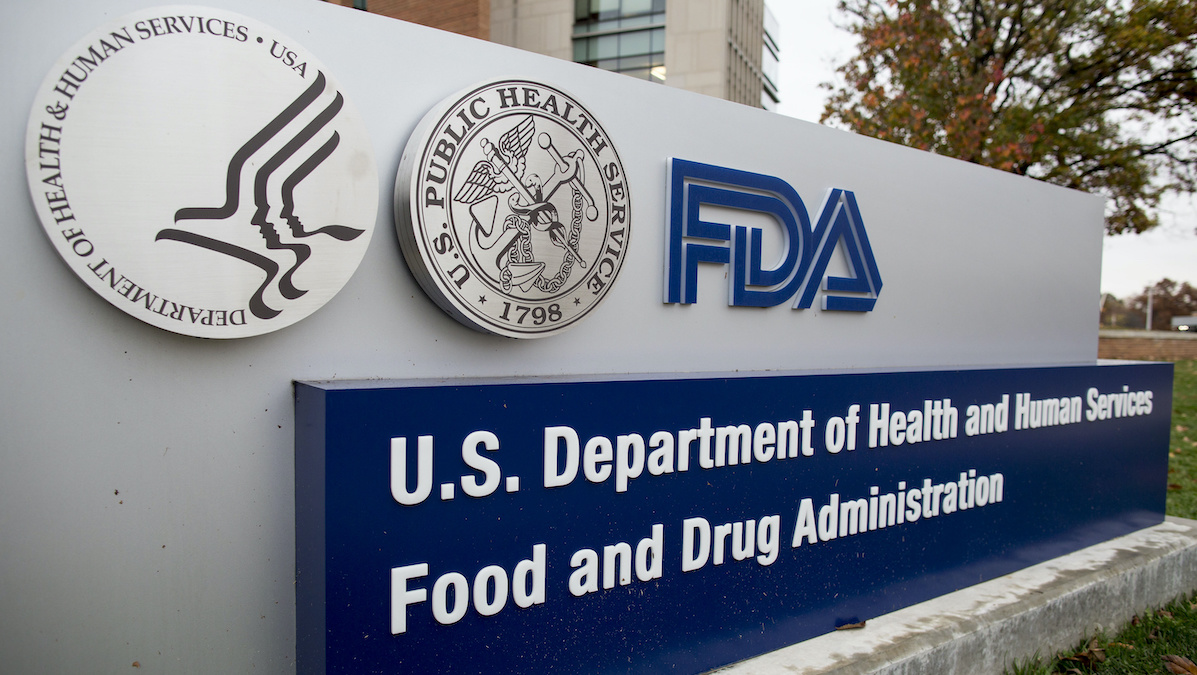
FDA Issues Emergency Authorization to Treat COVID-19 With Malaria Drugs

The outside of the Food and Drug Administration headquarters in White Oak, Md. on Nov. 9, 2015. Al Drago / CQ Roll Call
The U.S. Food and Drug Administration has approved the use of two malarial drugs to treat and prevent COVID-19, the respiratory infection caused by the SARS-CoV-2 coronavirus, despite only anecdotal evidence that either is proven effective in treating or slowing the progression of the disease in seriously ill patients.
Under the emergency use authorization (EUA), millions of doses will be made available to doctors’ patients through a Strategic National Stockpile “to be distributed and prescribed by doctors to hospitalized teen and adult patients with COVID-19, as appropriate, when a clinical trial is not available or feasible,” announced the U.S. Department of Health and Human Services in a statement.
In laboratory studies, the oral prescription drugs have shown “activity” against coronaviruses, including SARS-CoV-2. As of now, the drugs are only approved to treat malaria and other diseases like arthritis.
“Clinical trials are needed to provide scientific evidence that these treatments are effective,” adds DHHS. To determine whether either drug may be effective against the virus, a number of studies are currently ongoing. At the University of Washington, for example, researchers are working to determine whether hydroxychloroquine can prevent transmission in people exposed to the virus.
“We currently don’t know if hydroxychloroquine works, but we will learn in as short a timeframe as possible what the outcome is,” said principal investigator Ruanne Barnabas, associate professor of global health in the University of Washington schools of Medicine and Public Health. The Centers for Disease Control and Preventions (CDC) adds that hydroxychloroquine is available by prescription only and may react with other drugs. As such, it should be used under the discretion of a doctor.
Similarly, chloroquine phosphate is only available in the U.S. by prescription for the treatment of malaria, according to the CDC. In recent weeks, several studies aimed at understanding the efficacy and safety of chloroquine found that there is “pre-clinical evidence of effectiveness and evidence of safety from long-term clinical use.”
However, neither drug has been approved yet for treating or preventing COVID-19. The CDC has warned against the misuse of chloroquine without direction of a doctor after at least two people who ingested non-pharmaceutical chloroquine phosphate – used in aquarium and available for purchase for use in aquariums and online.
On average, it takes 12 years for the FDA to approve a new drug. For existing drugs that have already undergone safety studies, that timeframe may vary. Generally, FDA approval comes in three phases: the first which tests safety in humans and lasts about a year, the second that assesses the drug’s effectiveness and takes about two years, and the third which monitors and evaluates effectiveness and adverse reactions in a large population, which requires three years. The fast-track is in response to the rapidly increasing cases and death rate currently being seen in COVID-19 cases, allowing doctors and patients have access to “unapproved medical countermeasure or unapproved uses” of these measures to “prepare for and respond to chemical, biological, radiological, and nuclear threats.”
“An EUA may be issued if the FDA determines that, among other criteria, the known and potential benefits of the product, when used to diagnose, prevent, or treat the identified disease or condition, outweigh the known and potential risks of the product, and there are no adequate, approved, available alternatives. Emergency access to a medical product under an EUA is separate from use of a medical product under an investigational drug application,” adds the DHHS.
The FDA concludes that the EUA will require that fact sheets be provided to healthcare providers and patients about using chloroquine phosphate and hydroxychloroquine sulfate to treat COVID-19, which includes the risks and possible drug interactions.
- WHO Suspends Trial of Trump-Touted COVID-19 Treatment Hydroxychloroquine Due to Safety Concerns - EcoWatch
- U.S. Revokes Emergency Use of Malaria Drugs for COVID-19 - EcoWatch
- CDC Tells States to Prepare for a Vaccine Before November Election - EcoWatch

 233k
233k  41k
41k  Subscribe
Subscribe 